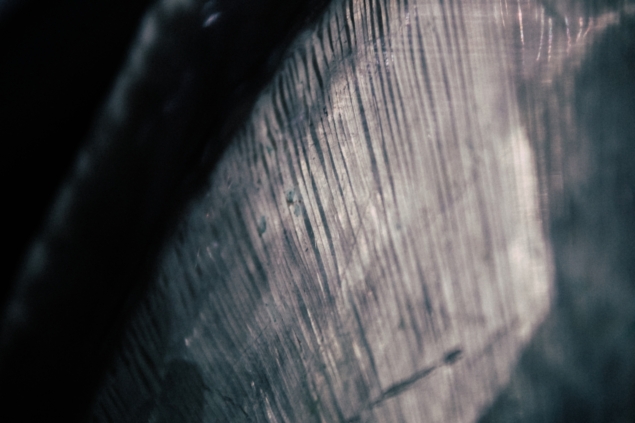Over centuries, the music of Johann Sebastian Bach has been a mirror into which composers and performers of different epochs have gazed—listening to it, recomposing it, concocting remarkable treatments and interpretations.
Bach. Remix. Lena Revich and Alexander Khubeev’s Project
- Date:
- 15 May 2024,
20:00–21:30
- Age restrictions
- 12+
Programme
Johann Sebastian Bach (1685-1750)—Alexander Khubeev (b. 1986)
Partita no. 1 in B minor BWV 1002
I. Allemanda — Double
II. Corrente — Double (Presto)
III. Sarabande — Double
IV. Tempo di borea — Double
Partita no. 3 in E major BWV 1006
I. Preludio
II. Loure
III. Gavotte en Rondeau
IV. Menuet I
V. Menuet II
VI. Bourrée
VII. Gigue
Sonata no. 2 in A minor BWV 1003
III. Andante
for solo violin and electronics
(1720/2024, world premiere)
Commissioned by
Culture
Elena Revich, violin
Sergey Kochetkov, sound engineer
The tradition includes romantic transcriptions of Bach’s works by Franz Liszt and Ferruccio Busoni, Anton Webern’s modernist adaption of the Ricercar in his J.S.Bach: Musical Offering, Igor Stravinsky’s neoclassical Choral Variations on the theme of the Christmas hymn Vom Himmel hoch da komm ich her, and Luciano Berio’s arrangement of the Contrapunctus XIX, which opened the history of twenty-first century music. In each new historical and stylistic context, Bach’s works have been a litmus test, revealing something important about the time and its acoustics.

Photo: Anya Todich
The project by the violinist Elena Revich and composer Alexander Khubeev is in this tradition. The two musicians hold a dialogue with the monumental Baroque cycle of sonatas and partitas for violin written by Bach in 1720. Like other eighteenth-century composers, Bach treated the musical text as a prototype, a model that encourages the performers to develop their own improvisational ideas, which may drift quite far away from the starting point. The compositional structure “model—version,” “invariant—variant” is characteristic of many of Bach’s works. It is, for example, the case of Partita no. 1, where each of the four dance movements is followed by a variation (a “double”).
Taking inspiration from the structure of Bach’s text, Alexander Khubeyev combines the two Partitas (nos. 1 and 3) and the slow movement of Sonata no. 2 in an electronic score, transforming them into an hour-long metacomposition for solo violin and multimedia. Elena Revich and Alexander Khubeev remind us that Bach’s music is an open-source programme with a built-in impulse to rethink the original and create new versions.
Elena Revich (b. 1973, Moscow) is a violinist. She studied with Irina Bochkova at the Moscow Conservatory. In 1998, she received a diploma at the 11th International Tchaikovsky Competition. She has worked with Yuri Bashmet, Vladimir Jurowski, Teodor Currentzis, and other prominent conductors and has given first performances of many works by contemporary Russian composers, including Sergej Newski, Dmitri Kourliandski, Olga Rayeva, and Pavel Karmanov. She was the initiator and artistic director of the Water Music festival in Moscow (2014–2015) and of Galileo. Opera for Violin and Scientist, staged at the Stanislavsky Electrotheatre in Moscow in 2017, which received three nominations for the Golden Mask National Theatre Award. Elena Revich tours regularly in Russia and Europe. She is a winner in Russia’s Triumph Youth Award and holds the title of Honoured Artist of Russia.
Alexander Khubeev (b. 1986, Perm) is a composer and curator. After graduation from the Moscow Tchaikovsky Conservatory in 2011, he continued his studies of composition with Yuri Kasparov and electroacoustic music with Igor Kefalidi, also at the Moscow Conservatory. He is the artistic director of the International Young Composers Academy in the town of Chaikovsky, and the co-founder and curator of reMusik.org composition courses in St. Petersburg. Alexander Khubeev won a scholarship at the International New Music Summer Course in Darmstadt (Germany, 2014), the Gaudeamus Award for young composers in the Netherlands (2015), a scholarship at the Berlin Academy of Arts (2018) and a residency at the International Confederation of Electroacoustic Music (CIME, 2019). In 2020, he was endorsed by the Russian Music 2.0 programme led by the Aksenov Family Foundation.

